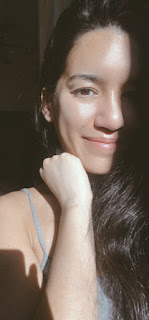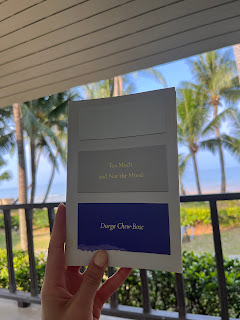Flare
By Mary Oliver
By Mary Oliver
Today's a hard day for me but instead of succumb to too much sorrow, I intend to spend the day outdoors. I know Mary Oliver would approve and—speaking of—there's a poem I encountered earlier this year, while making my way through Devotions, that stunned me. A new one I'd never read before that I immediately felt in my bones.
Full read in its whole perfect splendor, here.
And it starts with, "Welcome to the silly, comforting poem."
"5.
My mother was the blue wisteria,
My mother was the blue wisteria,
my mother
was the mossy stream out being the house,
my mother, alas, alas,
did not always love her life,
heavier than iron it was
as she carried it in her arms, from room to room,
oh, unforgettable!
I bury her
in a box
in the earth
and turn away.
My father
was a demon of frustrated dreams,
was a breaker of trust,
was a poor, thin boy with bad luck.
He followed God, there being no one else
he could talk to;
he swaggered before God, there being no one else
who would listen.
Listen,
this was his life.
I bury it in the earth.
I sweep the closets.
I leave the house.
6.
I mention them now,
I will not mention them again.
It is not lack of love
nor lack of sorrow.
But the iron thing they carried, I will not carry.
I give them—one, two, three, four—the kiss of courtesy,
of sweet thanks,
of anger, of good luck in the deep earth.
May they sleep well. May they soften.
But I will not give them the kiss of complicity.
I will not give them the responsibility for my life.
7.
Did you know that the ant has a tongue
with which to gather in all that it can
of sweetness?
Did you know that?
8.
The poem is not the world.
It isn't even the first page of the world.
But the poem wants to flower, like a flower.
It knows that much.
It wants to open itself,
like the door of a little temple,
so that you might step inside and be cooled and refreshed,
and less yourself than part of everything."
And towards the end,
"A lifetime isn't long enough for the beauty of the world
and the responsibilities of your life.
and the responsibilities of your life.
Scatter your flowers over the graves, and walk away.
Be good-natured and untidy in your exuberance.
In the glare of your mind, be modest.
And beholden to what is tactile, and thrilling."















